Welcome New Faculty 2022
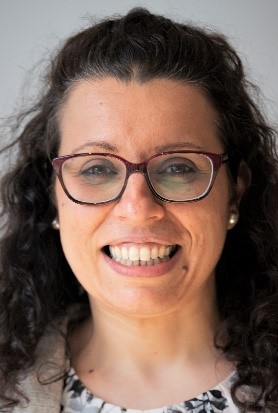 Dr Samah Hayek, DrPH. She is a new faculty member in the Department of Epidemiology and Preventive Medicine, at the School of Public Health, Faculty of Medicine. She also serves as a senior researcher/ Epidemiologist at Clalit Research Institute.
Dr Samah Hayek, DrPH. She is a new faculty member in the Department of Epidemiology and Preventive Medicine, at the School of Public Health, Faculty of Medicine. She also serves as a senior researcher/ Epidemiologist at Clalit Research Institute.
Samah holds a B.A. in statistics, and sociology-anthropology; and a Master Degree in public heath from the University of Haifa. She obtained her doctoral degree in Public Health (Epidemiology) at the University of Kentucky, as a Fulbright scholar. She completed a two-year fellowship at the Center for Disease Control and Prevention (CDC), Atlanta, Georgia, USA. Further, she completed a post-doctoral study in the department of Epidemiology and Cancer Control, at St. Jude Children Research Hospital, Memphis, Tennessee, USA.
Dr. Hayek is devoted to cutting-edge science to improve the overall health and well-being by utilizing big data and applying advanced statistical modelling, and machine learning in the medical field. Specifically, her research interest in cancer epidemiology, and studying the spectrum of cancer care; from diagnosis to survivorship. On one hand, she is trying to develop clinical tools for early identification of cancer, and on the other hand, she is studying the long-term effect of cancer therapies on physical and mental health of children, adolescence and young adult survivors.
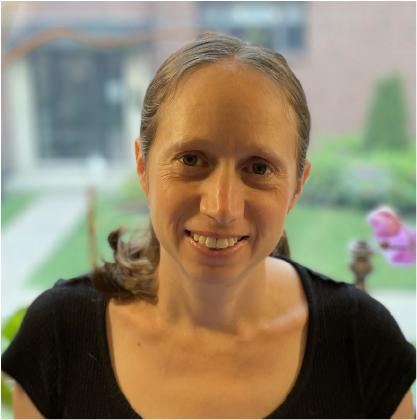 Dr. Yaara Oren is a new faculty member in the Department of Human Molecular Genetics and Biochemistry in the Faculty of Medicine. Dr. Oren completed her doctoral studies in the Department of Microbiology and Cell Research at Tel Aviv University. She then continued her post-doctoral studies in collaboration between Harvard Medical School and Broad, a joint research institute of Harvard and MIT. Dr. Oren was awarded a postdoctoral fellowship from the HOPE Foundation for the study of hard-to-treat cancers, as well as a research fellowship from the Rivkin Foundation for ovarian cancer research. Dr. Oren's research investigates a rare population of cancer cells, called persister cells, which are able to evade the drugs without acquiring a genetic mutation. These cells are probably at the root of our inability to cure cancer even when it is possible to treat the patient with a drug that matches the genetic code of their cancer. Despite the great clinical importance of understanding the processes that enable the survival of persister cells, their rarity and the difficulty of characterizing them have hampered the development of treatments that target them. Dr. Oren's research combines single-cell experimental and computational tools to shed light on the processes that enable persister cells to survive treatment. Dr. Oren hopes that the research being carried out in her laboratory will serve as a basis for the development of drugs that will kill this deadly cell population.
Dr. Yaara Oren is a new faculty member in the Department of Human Molecular Genetics and Biochemistry in the Faculty of Medicine. Dr. Oren completed her doctoral studies in the Department of Microbiology and Cell Research at Tel Aviv University. She then continued her post-doctoral studies in collaboration between Harvard Medical School and Broad, a joint research institute of Harvard and MIT. Dr. Oren was awarded a postdoctoral fellowship from the HOPE Foundation for the study of hard-to-treat cancers, as well as a research fellowship from the Rivkin Foundation for ovarian cancer research. Dr. Oren's research investigates a rare population of cancer cells, called persister cells, which are able to evade the drugs without acquiring a genetic mutation. These cells are probably at the root of our inability to cure cancer even when it is possible to treat the patient with a drug that matches the genetic code of their cancer. Despite the great clinical importance of understanding the processes that enable the survival of persister cells, their rarity and the difficulty of characterizing them have hampered the development of treatments that target them. Dr. Oren's research combines single-cell experimental and computational tools to shed light on the processes that enable persister cells to survive treatment. Dr. Oren hopes that the research being carried out in her laboratory will serve as a basis for the development of drugs that will kill this deadly cell population.
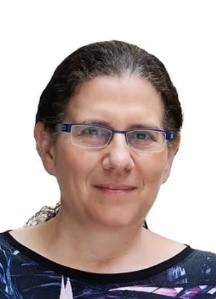 Prof. Rachel Kizony, PhD, the Department of Occupational Therapy faculty, is an occupational therapist. Prof. Kizony completed her PhD at the Hebrew University of Jerusalem, and her postdoctoral training at McGill University, Montreal, Canada.
Prof. Rachel Kizony, PhD, the Department of Occupational Therapy faculty, is an occupational therapist. Prof. Kizony completed her PhD at the Hebrew University of Jerusalem, and her postdoctoral training at McGill University, Montreal, Canada.
Prof. Kizony’s research aims to achieve a better understanding of how cognition and specifically functional cognition is linked to a person ability to participate in everyday activities by integrating her expertise in neurological rehabilitation, the aging process, and rehabilitation technologies. Specifically, she is exploring the role of cognition in everyday function, conducting clinical studies in various populations such as post-stroke, traumatic brain injury, Parkinson’s disease, and cancer. Further, she developed interventions targeting functional cognition and daily participation, some of which incorporate telerehabilitation. Currently she is investigating brain activation during the performance of cognitive tasks to better understand mechanisms underlying the cognitive performance.
She is also affiliated with the department of Occupational Therapy at the University of Haifa, currently on leave.
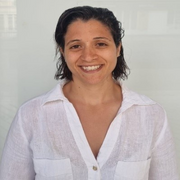 Dr. Mor Saban, PhD, is a new faculty member in the Department of Nursing at the School of Health Professions of the Faculty of Medicine. She also serves as a senior researcher in the Center for Technology Assessment in Health Care at the Gertner Institute of Epidemiology and Health Policy Research. Dr. Saban holds a B.A. degree in nursing, three Master’s degrees (MA, MPH, MEM) with an emphasis in emergency management and health policy, and a PhD in the field of clinical decision-making in an emergency setting from Haifa University. She completed a post-doctoral fellowship in the Department of Health System Management at Ben-Gurion University. She continued her studies in data science with a specialization in machine learning at Bar-Ilan University.
Dr. Mor Saban, PhD, is a new faculty member in the Department of Nursing at the School of Health Professions of the Faculty of Medicine. She also serves as a senior researcher in the Center for Technology Assessment in Health Care at the Gertner Institute of Epidemiology and Health Policy Research. Dr. Saban holds a B.A. degree in nursing, three Master’s degrees (MA, MPH, MEM) with an emphasis in emergency management and health policy, and a PhD in the field of clinical decision-making in an emergency setting from Haifa University. She completed a post-doctoral fellowship in the Department of Health System Management at Ben-Gurion University. She continued her studies in data science with a specialization in machine learning at Bar-Ilan University.
Dr. Saban's research emphasis is on clinical decision-making in medicine and the impact of using decision-support technologies on decision-making processes. Furthermore, her research focuses on improving health policy, such as developing a methodology for measuring waiting times for elective procedures and developing optimization models for resource allocation in health systems. At the Gertner Institute, Dr. Saban was the Director of National Hospital Waiting Time Measurement and led a national project for implementing a clinical decision support system in radiology.
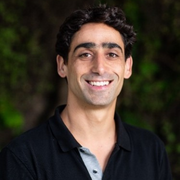 Dr. William Saban (Will), Ph.D., is a new faculty member in the Department of Occupational Therapy at the The Stanley Steyer School of Health Professions. Dr. Saban completed his Clinical Neuropsychology Ph.D. studies at the University of Haifa, Department of Psychology. Then, he completed his postdoctoral training at the University of California Berkeley, Department of Psychology, and the Helen Wills Neuroscience Institute, where he received the prestigious Rothschild Fellowship. In his research, Dr. Saban explores the uncharted territory of subcortical brain areas that are hypothesized to influence cognition. To date, he has utilized complementary methodological approaches regarding 1) lesion studies, 2) healthy humans using stereoscopic manipulation, and 3) comparative neuroscience using archerfish to investigate how the subcortex supports cognition (e.g., attention, arithmetic, sequence learning).
Dr. William Saban (Will), Ph.D., is a new faculty member in the Department of Occupational Therapy at the The Stanley Steyer School of Health Professions. Dr. Saban completed his Clinical Neuropsychology Ph.D. studies at the University of Haifa, Department of Psychology. Then, he completed his postdoctoral training at the University of California Berkeley, Department of Psychology, and the Helen Wills Neuroscience Institute, where he received the prestigious Rothschild Fellowship. In his research, Dr. Saban explores the uncharted territory of subcortical brain areas that are hypothesized to influence cognition. To date, he has utilized complementary methodological approaches regarding 1) lesion studies, 2) healthy humans using stereoscopic manipulation, and 3) comparative neuroscience using archerfish to investigate how the subcortex supports cognition (e.g., attention, arithmetic, sequence learning).
At present, Dr. Saban is focused on utilizing neuropsychological approaches to examine the role of the cerebellum and basal ganglia in cognition. For this work, he tests patients with degenerative disorders of the cerebellum (cerebellar degeneration) or the basal ganglia (Parkinson’s disease). To facilitate patient studies, he has developed and implemented a novel online platform for conducting neuropsychological research (PONT) in the USA. Dr. Saban is also developing iPONT: an Israeli Platform for Online Neuropsychological Testing, a joint venture between Tel Aviv University and the Tel-Aviv Sourasky Medical Center, specializing in remote neuropsychological testing for individuals with neurological abnormalities such as Parkinson's disease, spinocerebellar ataxia, and dyslexia. The main advantage of remote neuropsychological testing is the vast amount of data we can collect quickly. Dr. Saban’s research identifies risk factors and cognitive markers for these neurological abnormalities. With these large data sets, by utilizing computational models and machine learning algorithms, he aims to better map the subtypes and progression of these diseases, leading to improved earlier detection and cognitive interventions.
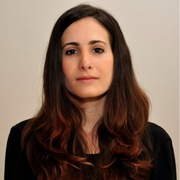 Dr. Tony Gutentag joins the Department of Medical Education this year as a Senior Lecturer. Dr. Gutentag completed a B.A., M.A., Ph.D., and M.B.A., all Magna Cum Laude at the Hebrew University of Jerusalem. She completed her post-doctoral training in educational psychology at the Hebrew University, and in psychology at the University of Toronto and at the University of Melbourne. Dr. Gutentag studies social and emotional aspects in education in general, and in medical education in particular. For example, in what way can we help physicians to be more empathic toward their patients? How can we attenuate burnout among healthcare professionals? Can we improve medical students’ learning by using academically productive talk? Dr. Gutentag’s research is interdisciplinary, combining psychology, organizational behavior, education, and psychometrics, and uses multi-method (e.g., experiments, surveys, experience sampling). Google scholar; ResearchGate; Twitter; Email
Dr. Tony Gutentag joins the Department of Medical Education this year as a Senior Lecturer. Dr. Gutentag completed a B.A., M.A., Ph.D., and M.B.A., all Magna Cum Laude at the Hebrew University of Jerusalem. She completed her post-doctoral training in educational psychology at the Hebrew University, and in psychology at the University of Toronto and at the University of Melbourne. Dr. Gutentag studies social and emotional aspects in education in general, and in medical education in particular. For example, in what way can we help physicians to be more empathic toward their patients? How can we attenuate burnout among healthcare professionals? Can we improve medical students’ learning by using academically productive talk? Dr. Gutentag’s research is interdisciplinary, combining psychology, organizational behavior, education, and psychometrics, and uses multi-method (e.g., experiments, surveys, experience sampling). Google scholar; ResearchGate; Twitter; Email
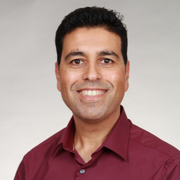 Dr. Ronen Segev is a new faculty member at the Department of Nursing in the School of Health Professions. Dr. Segev obtained his BA, MA and PhD from Tel Aviv University. He performed his post doctoral training at Ben Gurion University of the Negev. Dr. Segev has clinical experience at the Department Nephrology of Hasharon Hospital. He has more than 10 years of experience in teaching nursing at the Ruppin Academic Center. Segev’s research focuses on medical education and the history of nursing and health professions, including in multicultural societies.
Dr. Ronen Segev is a new faculty member at the Department of Nursing in the School of Health Professions. Dr. Segev obtained his BA, MA and PhD from Tel Aviv University. He performed his post doctoral training at Ben Gurion University of the Negev. Dr. Segev has clinical experience at the Department Nephrology of Hasharon Hospital. He has more than 10 years of experience in teaching nursing at the Ruppin Academic Center. Segev’s research focuses on medical education and the history of nursing and health professions, including in multicultural societies.


